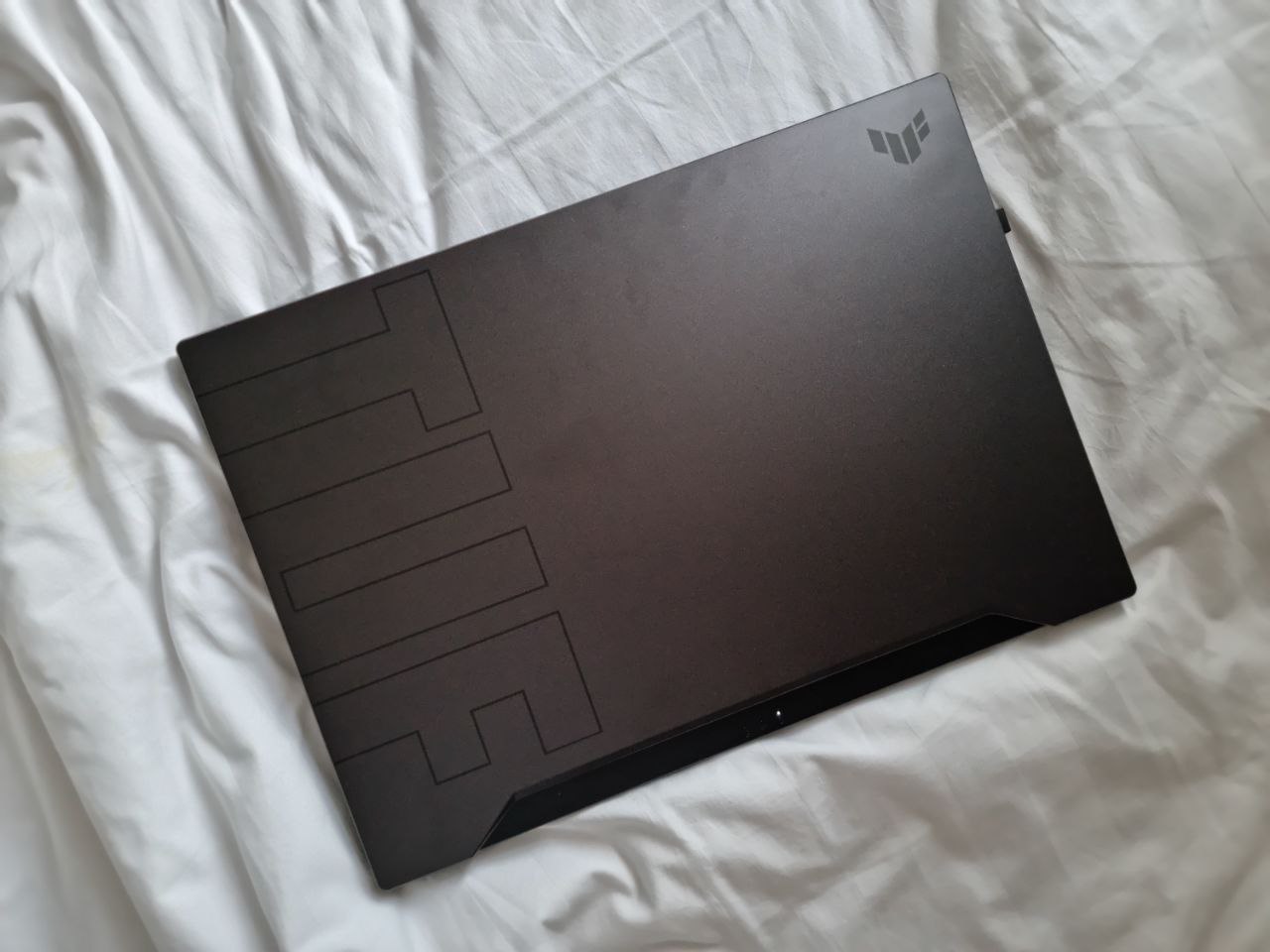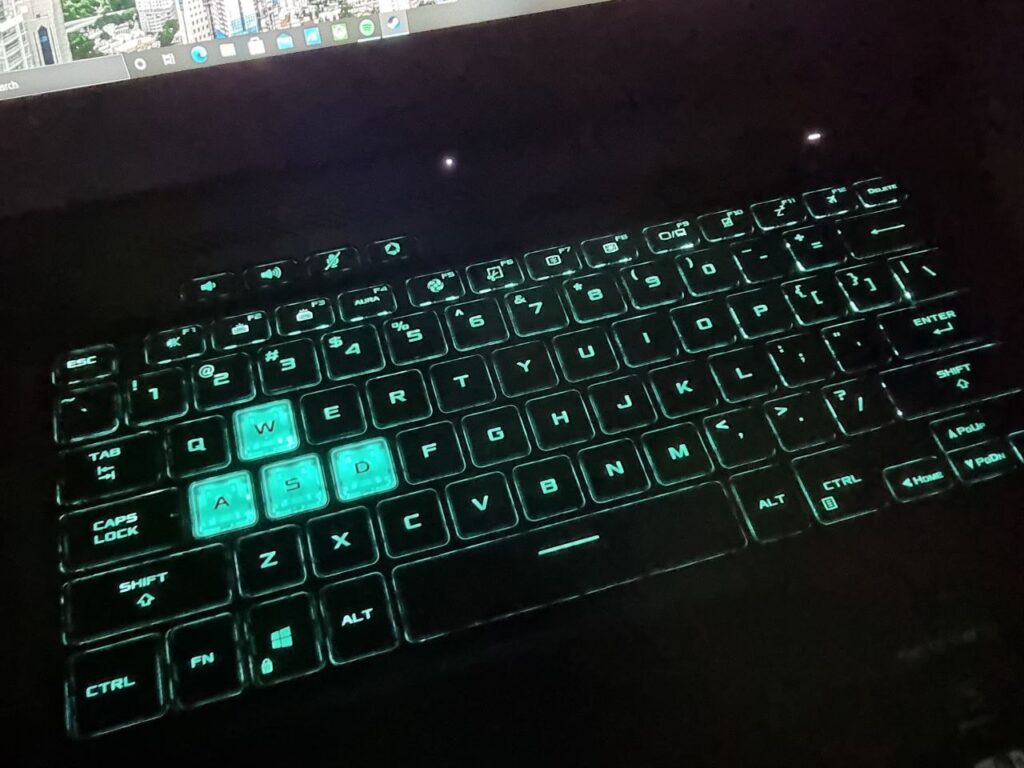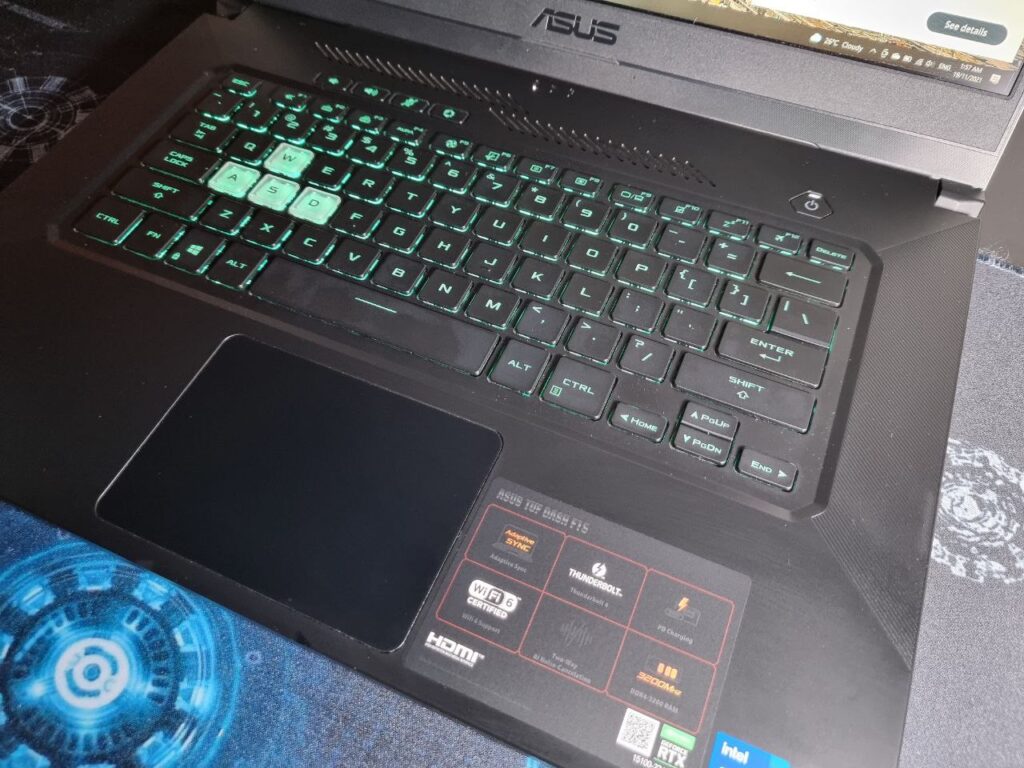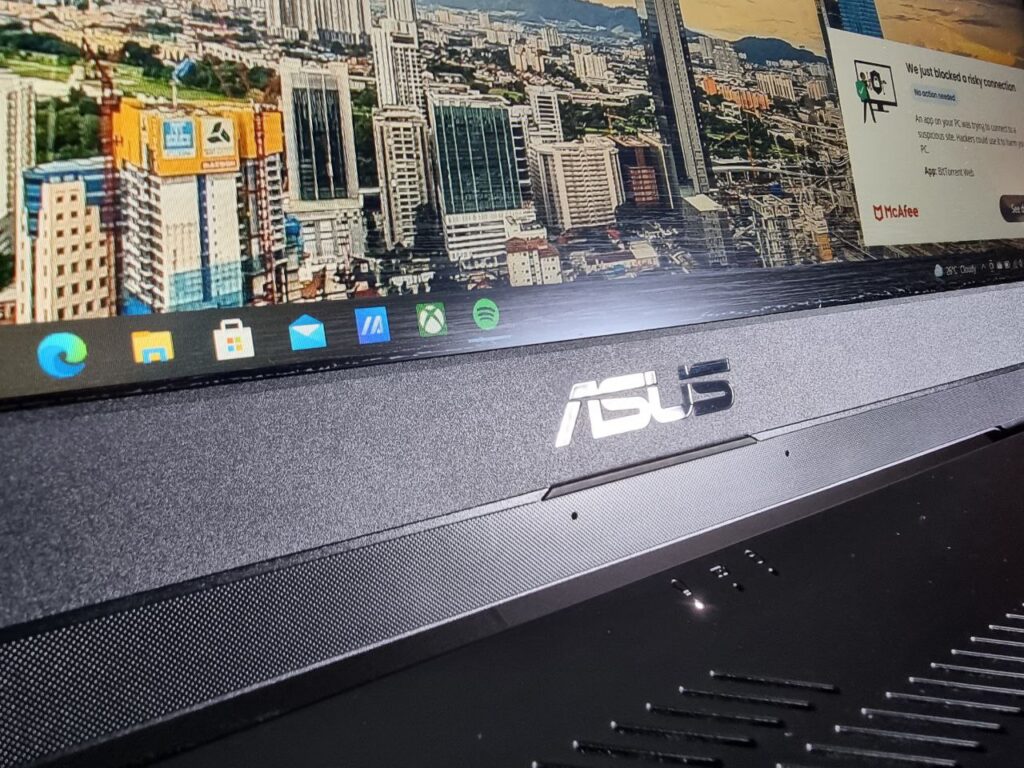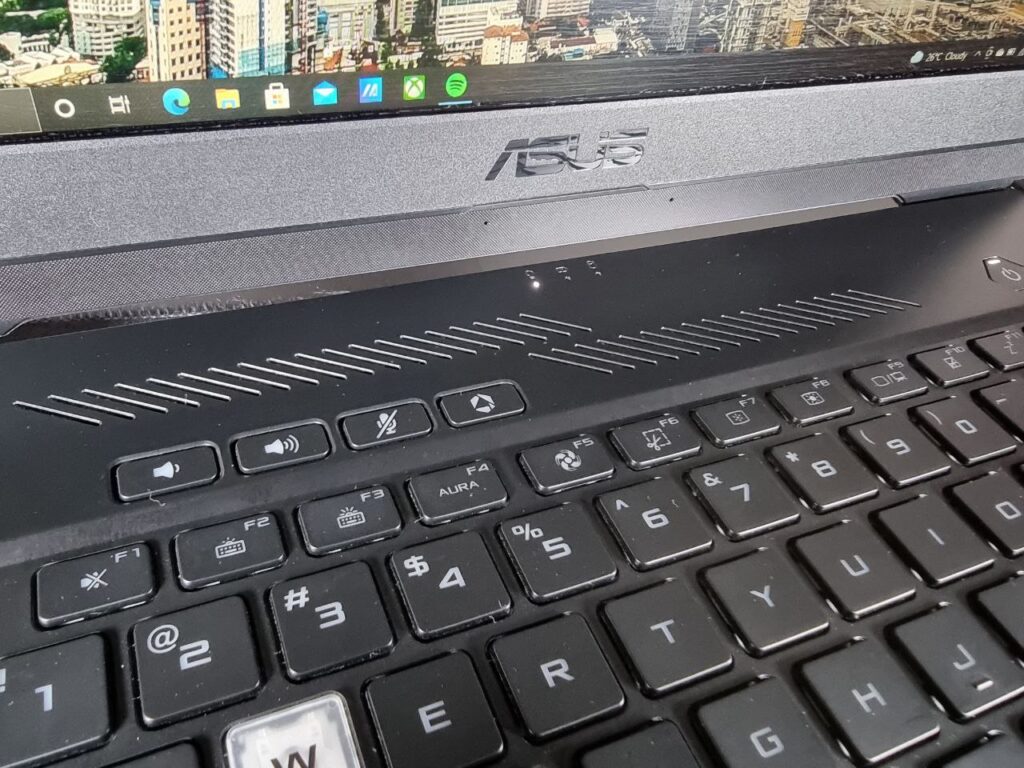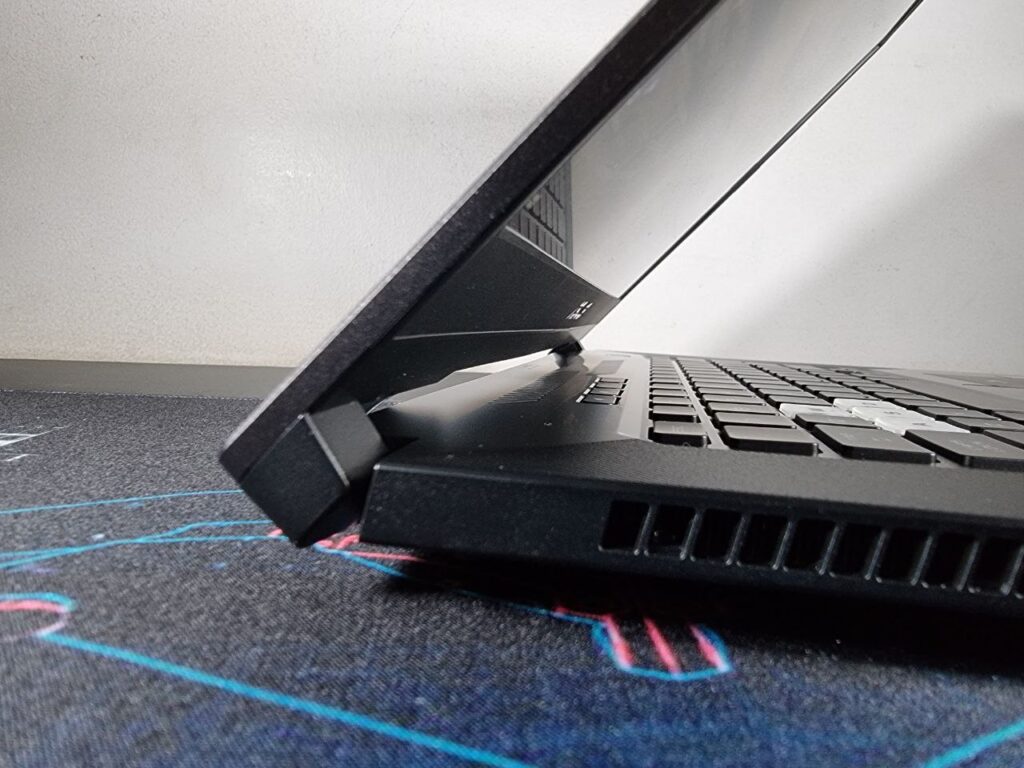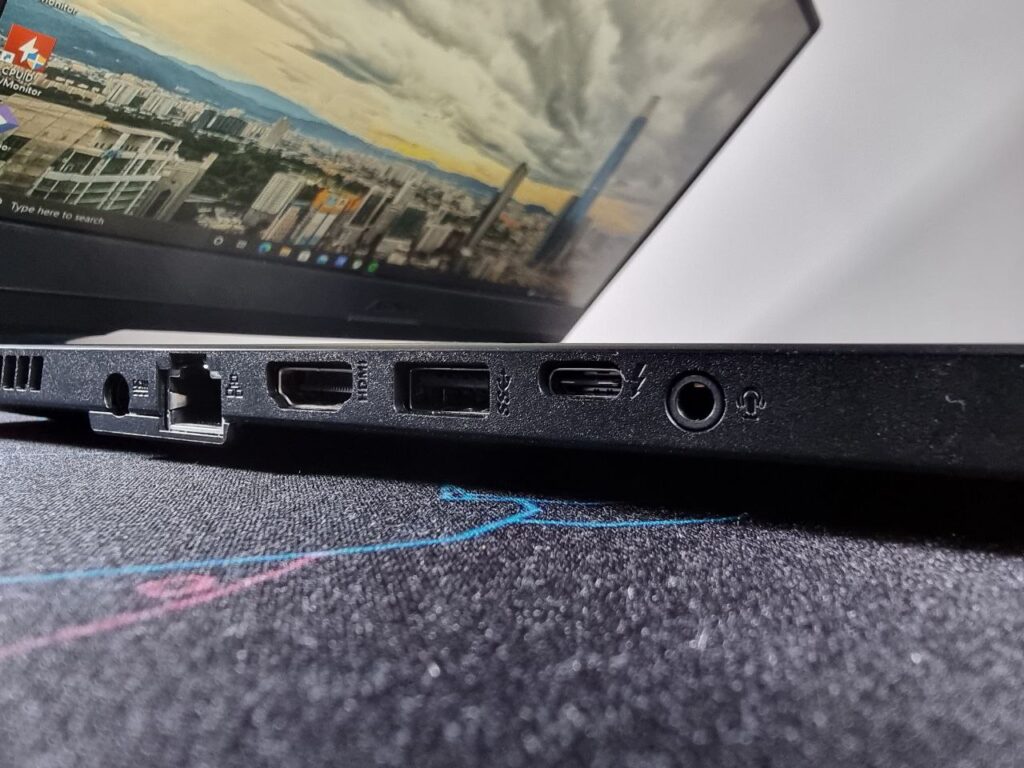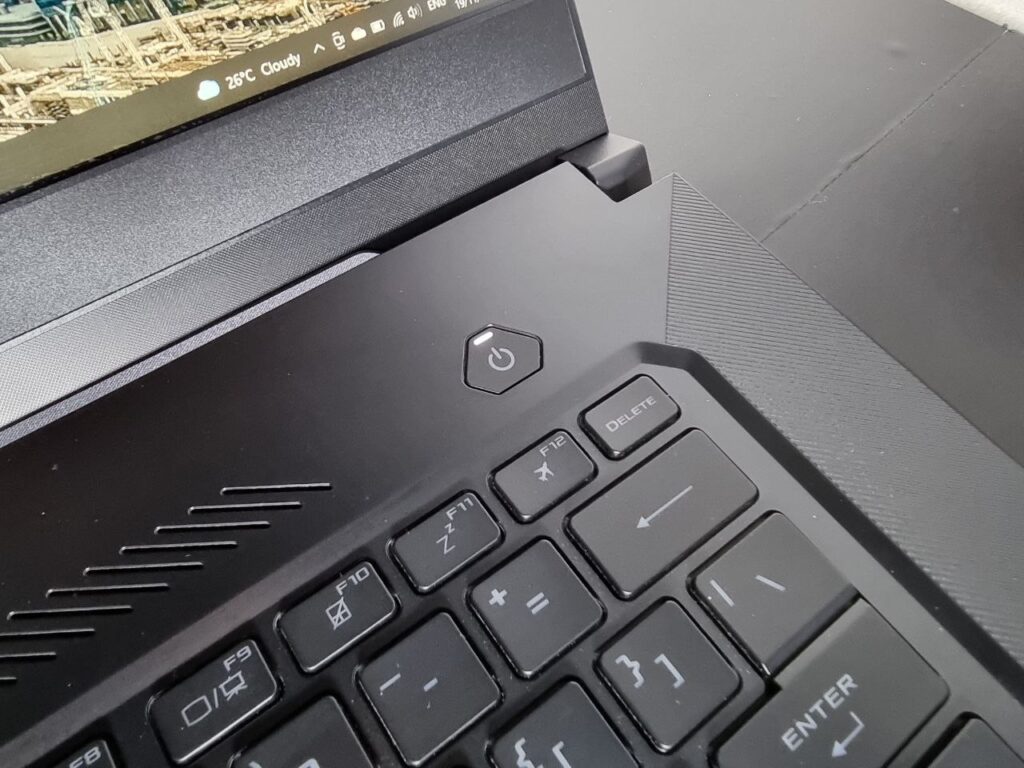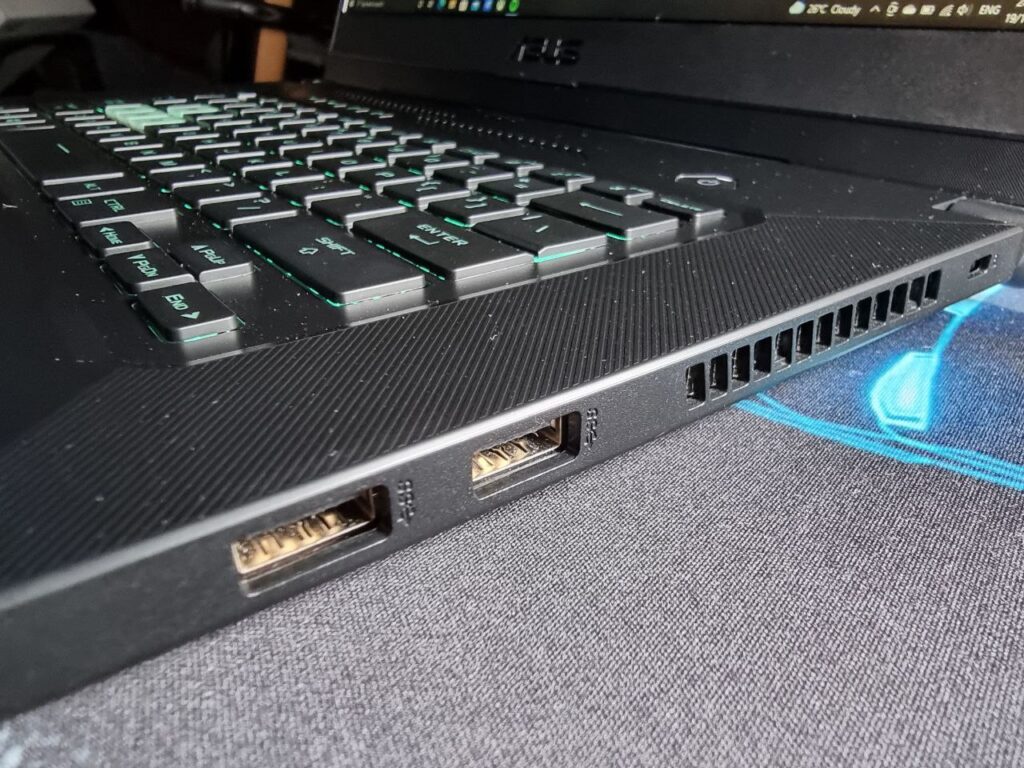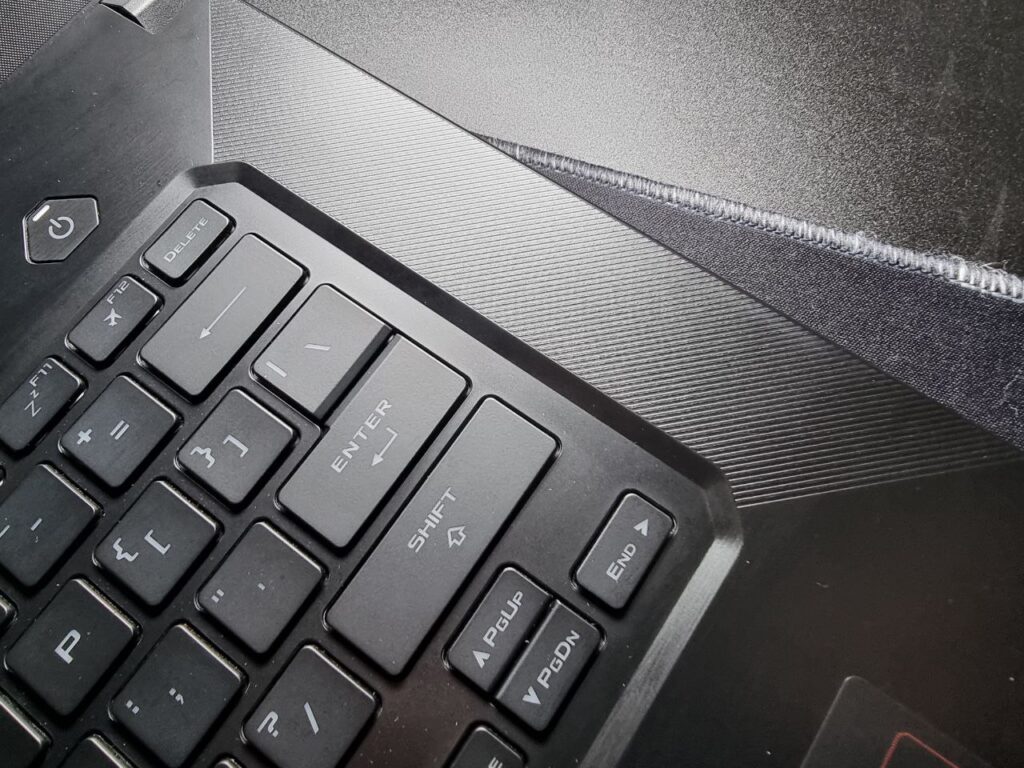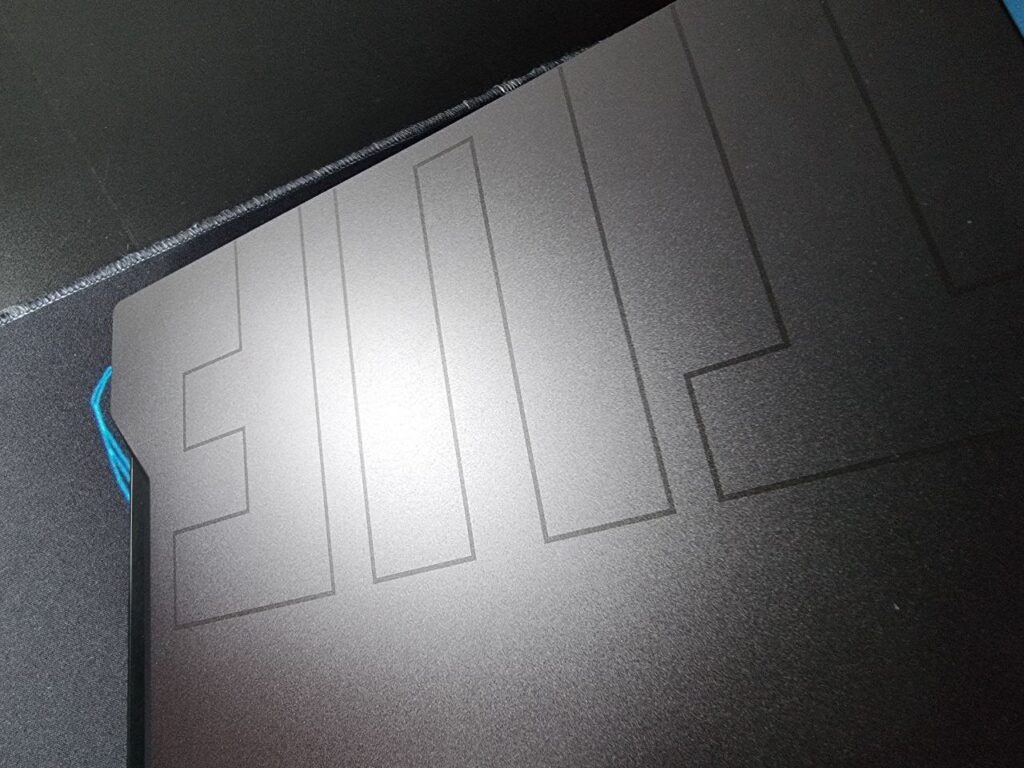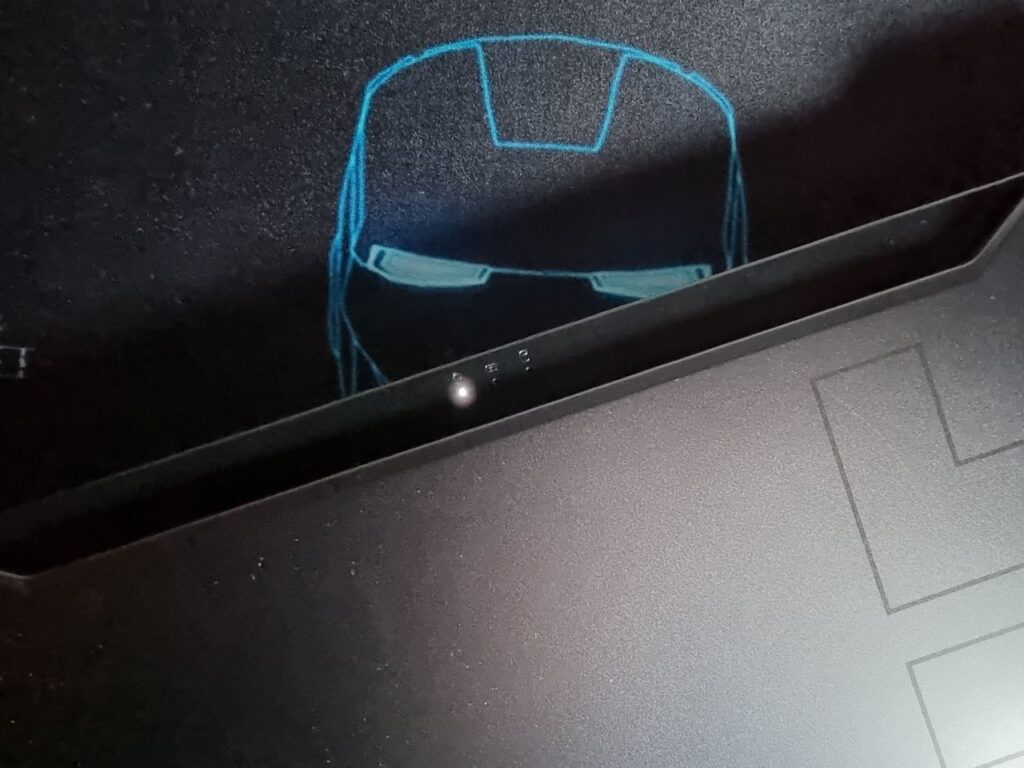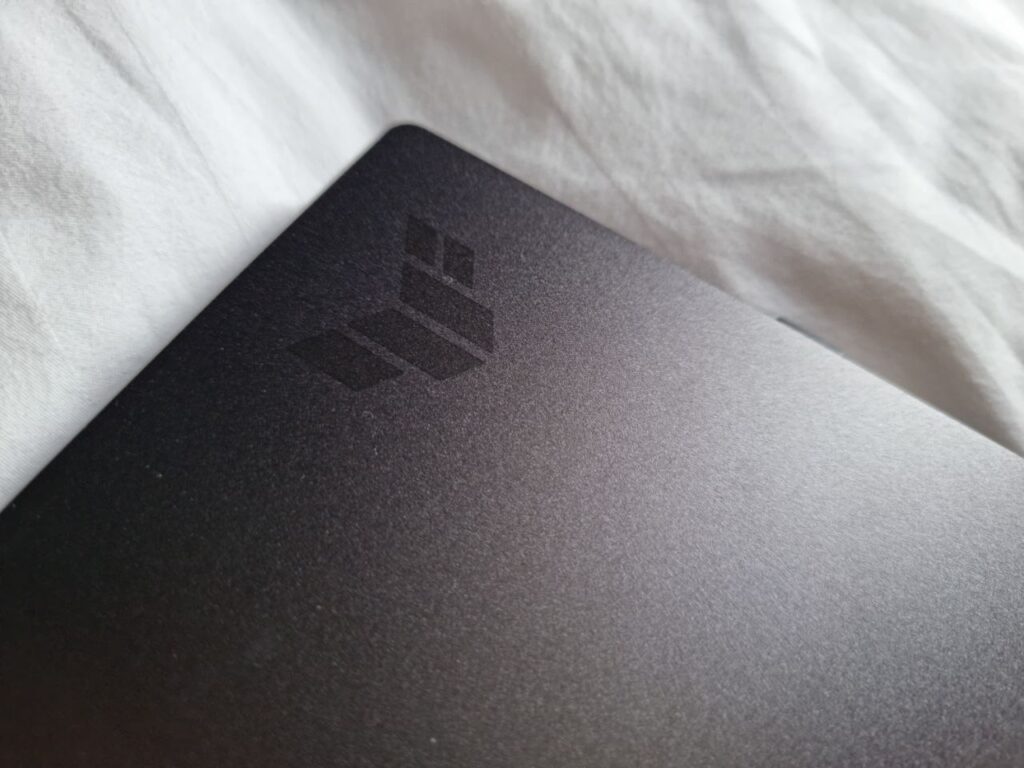The ASUS TUF line-up has its roots in 2010 as one of ASUS’ peripherals arms. Short for The Ultimate Force, they made peripherals for the gaming market. Unlike ROG though, the TUF line-up caters to the budget conscious gamers.
In that sense, some of the TUF are designed with durability and value in mind, and it shows. Beside the ROG name, the TUF branding is one of the most recognizable one in the gaming PC components industry.
The ASUS TUF gaming laptop line-up was made to be the entry-level category from 2016 onward. Of course, entry-level gaming laptops are full of compromises to make them as budget friendly as they can be. They were one of the first gaming laptops with MIL-STD 810 military standards certification, so they haven’t compromised on build quality. The performance was the one that took the hit though.
It is still a TUF gaming laptop, this TUF Dash F15, an entry-level product in other words. But it is not like any TUF gaming laptops that we know from before. It looks more sophisticated; more streamlined, and cleaner. It also packs a lot of power under its hood, or keyboard.
At MYR 5,799 though, it is not cheap. Should you consider an entry-level gaming laptop now if you are going into content creation and if you want to game without breaking the bank? Should you get this laptop for that matter?
Design
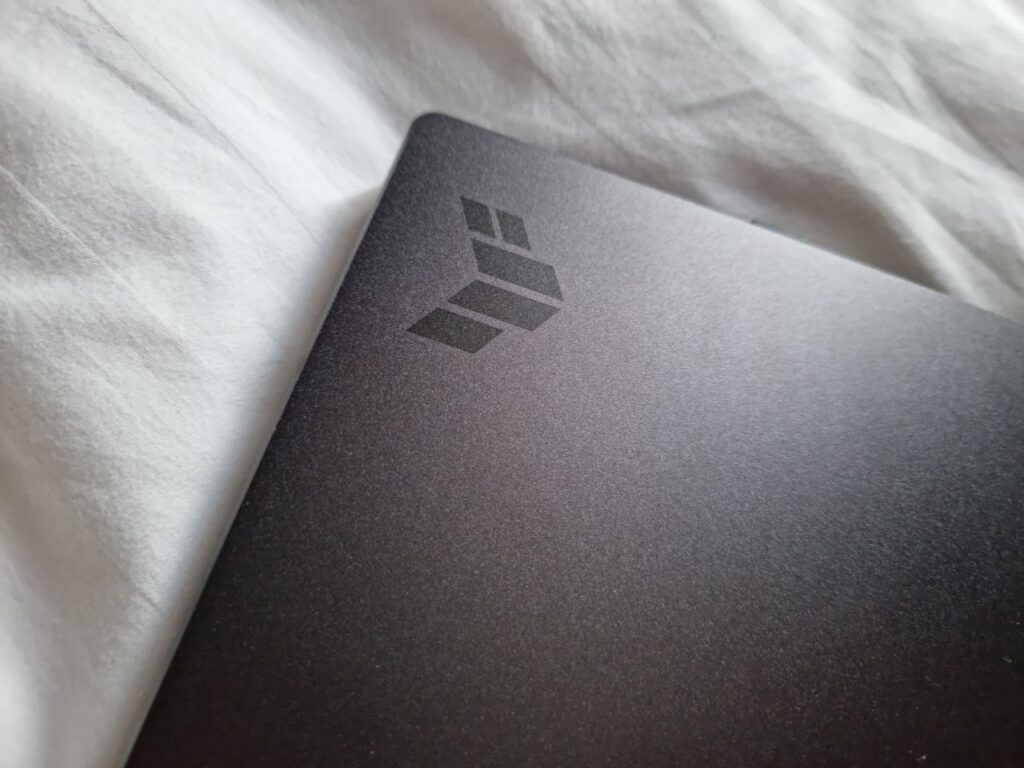
The ASUS TUF Dash F15 is not just an ASUS TUF gaming laptop. It is also their thinnest offering to date. While the other 15-incher from ASUS’ TUF line-up offers you about 2.5cm in thickness, the TUF Dash 15 is just below 2cm. The diet also takes off about 300g off the weight, at 2.0kg.
While remaining thinner and lighter than most 15-inch gaming laptops, the TUF Dash F15 still features three full-sized USB 3.0 Type-A ports, a full-sized HDMI 2.0 port, and an RJ45 port to the sides of the notebook. Of course, with any modern laptop, you can expect to see one USB Type-C port alongside a 3.5mm audio jack.
Our test unit comes with the Eclipse Gray matte finish, and we are fans of its looks. The redesigned TUF emblem is a lot flatter than before, elegant almost. Just in case you forgot, there are letterings spelling out TUF on its cover boldly reminding you that it is a TUF device.
The ASUS TUF Dash F15’s more compact body also means limitations in terms of cooling vents. The solution is moving the cooling vents elsewhere which also moves the ports toward users. Because the chassis is smaller too, the keyboard is now a ten-keyless with two very unsightly unused space sandwiching the keyboard. While they have disguised the unused space with some textured designs, we still think that ASUS could have made better use of the wasted spaces.
Most of the TUF Dash F15 is made of plastics. Despite being mostly plastic, the TUF Dash F15 does not feel cheap. The plastic parts, which mostly cover the bottom and the display bezel of the laptop, feels durable, just as an ASUS should.
Other than the subtle branding exercise, there are no creases or bulges that indicates a gaming laptop. The only indicator that this is a gaming laptop is the cut out at the bottom of the display paying homage to ASUS ROG’s original idea. The cover is a flat aluminium slate that hides its power.
Hardware
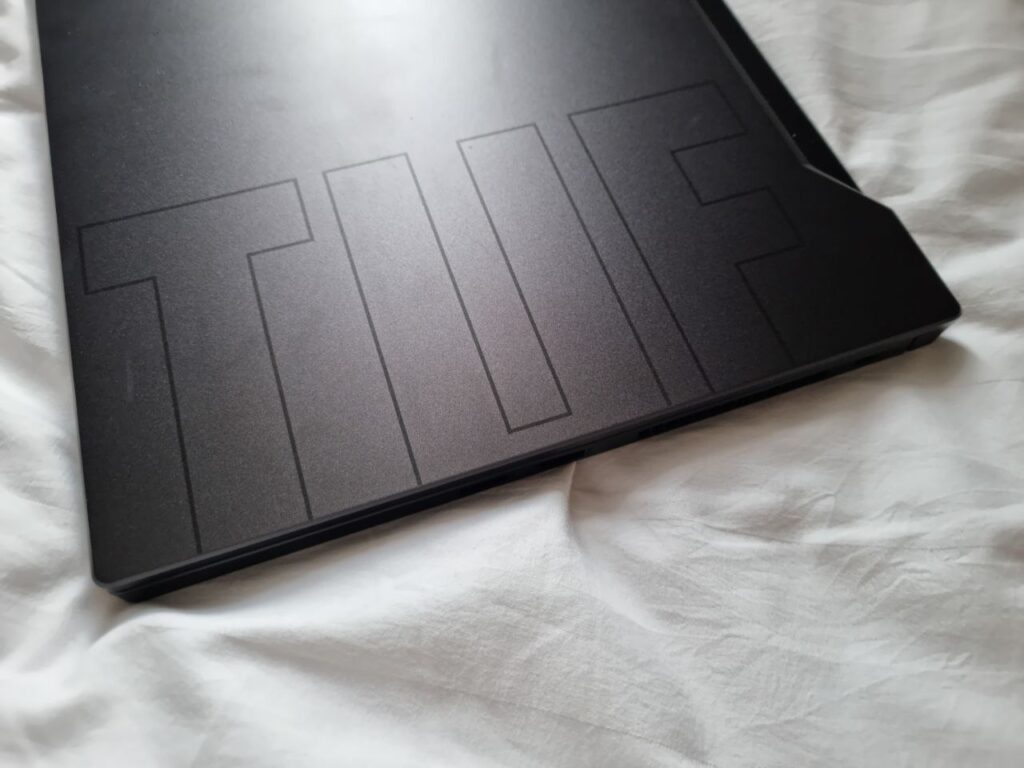
Underneath the MIL-STD 810 build of the ASUS TUF Dash F15 is a powerhouse of a processor combined with a powerful enough GPU that you can appreciate.
Specifications
| TUF Gaming Dash F15 (2021) | As Tested |
| Processor (clock) | Intel Core i7-11370H ([email protected]~4.4GHz) |
| GPU | NVIDIA GeForce RTX 3060 |
| Display(s) | 15.6-inch IPS (1920 x 1080 FHD) 144Hz Anti-glare Narrow Bezel |
| Memory | 512GB NVMe PCIe Gen 3 SSD 16GB DDR4 RAM (8GB x 2) |
| Networking and Connections (I/O) | 1 x USB 3.1 Type-C (Thunderbolt 4) 3 x USB 3.2 Type-A 1 x 3.5mm AUX 1 x HDMI 2.0 1 x RJ45 Ethernet Port WiFi 6 (802.11ax) Bluetooth 5.01 |
| Operating System | Windows 10 Home (64-bit) |
| Miscellaneous | 2.00kg DTS audio All-metal body |
Features
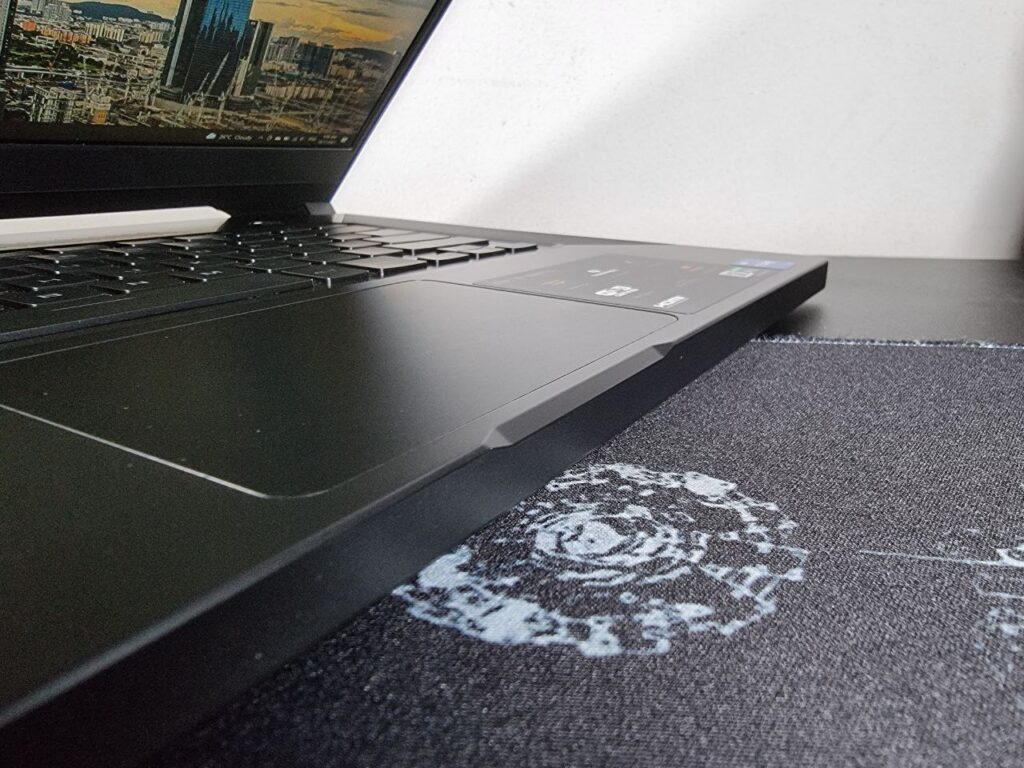
The ASUS TUF Gaming is not just an entry-level value offering though. It is a thin-and-light gaming laptop. You still want everything that makes the gaming laptop a proper working PC when you need it to be.
Full Ports
There is little sacrifice in terms of I/O ports. You still get three USB Type-A 3.2 ports on both sides. There is a full HDMI 2.0 port, and one thunderbolt 4 USB Type-C port on the left side of the device too for multi-display compatibility. You get a 3.5mm AUX jack too, which is a nice welcome since the ASUS ZenBook devices started omitting AUX ports. As mentioned, you also get a full RJ45 port.
We still feel that some of the ports like the HDMI, the charging, and even one of the USB Type-A ports could be shifted to the back for better ergonomics and cable management. It might sacrifice some needed space for the cooling vents though.
You will not find an SD card reader, which is a bummer for content creators. While card readers are not that expensive these days, it is also always nice to have one already built-in.
Armory Crate
The ASUS TUF Dash F15’s Armoury Crate allows you to choose your power profile. You can tell the device to push maximum power with performance mode. While the power profile is set to ‘balanced’ by default, launching Armory Crate is just a matter of a click of a button and changing profiles is also just a matter of clicking the ROG logo button that sits separately above the keyboard. The Armory Crate button is also grouped with the volume up, down, and mute buttons.
Sadly, the Armory Crate does not allow you to change the back lighting of the keyboard. That is also because the keyboard on the ASUS TUF Dash F15 does not feature RGB. You can customize how your keyboard is being lit though. If you have an ASUS Aura Sync compatible device, you can connect it to the TUF Dash F15 and customize the lighting scheme from Armory Crate.
Sorry, I Don’t Have a Webcam
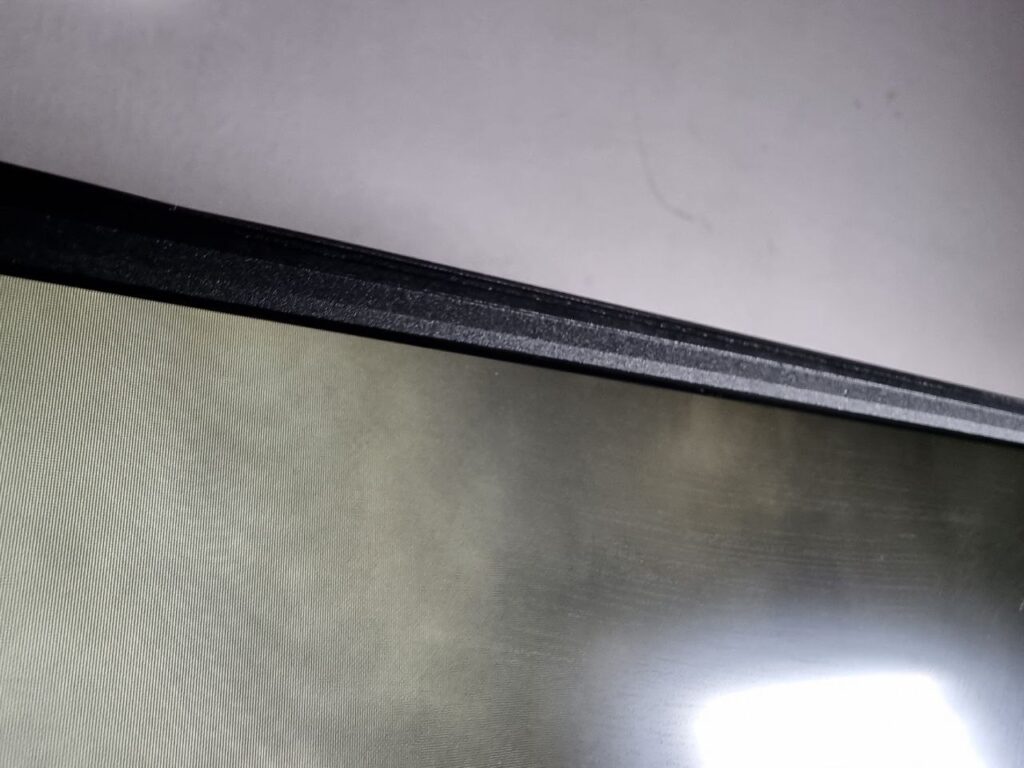
There is one glaring issue with the ASUS TUF Dash F15. It is one you cannot find. There is no webcam on the TUF Dash F15.
A lot of the included webcam on your laptops are not great though. You get subpar quality cameras that shoots at only 720p for video calls. Most of the time, your smartphone can do a much better camera capturing videos at 720p.
Webcams are easily accessible anyway. That also means that you might be better off with them anyway. You can even turn your smartphones into webcams these days.
Performance
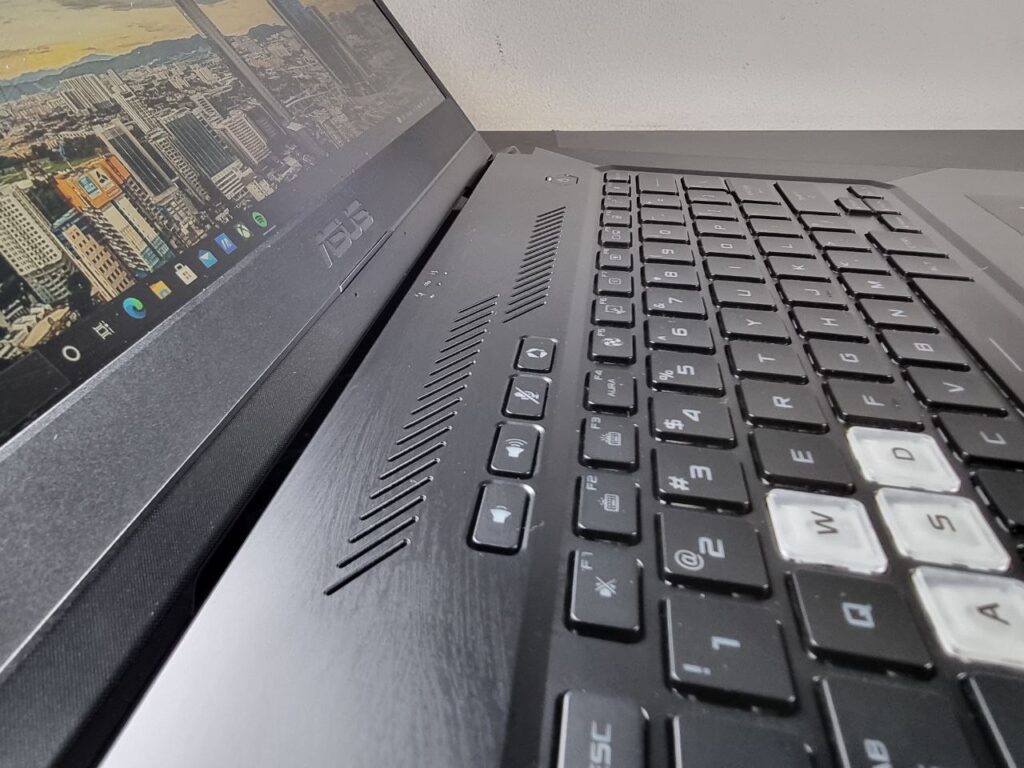
This is a gaming laptop built with performance in mind. It is also made with budget in mind. The terms ‘budget-friendly’ and ‘high-performance’ does not always come together very often. In the case of the ASUS TUF Dash F15 though, you can put the terms together.
Multitasking & Poductivity
You get 16GB RAM out of the box (as tested). That means you have ample of RAM to work with in normal use cases. 16GB is more than enough even for creative suites like Adobe’s Premiere Pro or even Photoshop. You might want to be a little patient with After Effects though.
Still, even if you are on Google Chrome, you can manage up to 20 tabs with no issues. Of course, a clever RAM management plugin should do wonders for Chrome. Ample RAM also means that documents processing and even PowerPoint is a breeze.
On the end of content creation, the ASUS TUF Dash F15 also comes into its own. We relied on Adobe’s suite for most of our audio-visual work. For videos, we work with Adobe’s Premiere Pro. We tasked the laptop to render an H.264 Full HD video from H.265 HEVC 4K sources. It took the ASUS TUF Dash F15 about 5 minutes and 19 seconds to render the video. At H.265 format, the ASUS TUF Dash F15 renders the video at just about half the time. Oddly, the laptop refuses to render 4K videos at both H.264 and H.265 formats.
Silently Working
Keyboards on ASUS’ gaming laptops have come a long way though. In case you forgot that the ASUS TUF Dash F15 is a gaming laptop, the light blue backlighting shows through on the transparent keycaps for the WASD buttons.
It is still a laptop though, so you cannot expect an experience that compares to mechanical keyboards. The key travel is limited, and tactility is not the best. While it does not feel like you are hitting your fingers on a wooden board, the keyboard does not give you the best feedback. It might not feel the best and your typing accuracy might suffer a little bit, but at least you will not be too fatigued when you type out long essays.
Gaming
On the ASUS TUF Dash F15, we tested games like Shadow of the Tomb Raider, Horizon Zero Dawn, and even Grand Theft Auto V. Horizon Zero Dawn is also made to be optimized for the Sony PlayStation 4 platform first, which would also mean that Horizon Zero Dawn should have no trouble running at higher settings.
We cranked the graphics settings on the eight-year-old Grand Theft Auto to its highest. The game clocked at a maximum of 120fps on Grand Theft Auto V. On average, the fps count hovers around the 100fps mark and above.
While Horizon Zero Dawn is made for the PS4 platform, it is still a graphics heavy game. That also means that it clocks only at about 90fps on average with its graphics settings turned all the way up. Shadow of the Tomb Raider did push the hardware on the TUF Dash F15 a little bit. At some points the game only clocked 28fps. There were some noticeable lags far and few. Still, at default settings (medium-high), the game could run at 40-50fps on average.
While you may not be able to enjoy all the current AAA titles at ultra-quality, they will be easily playable and therefore enjoyed on the ASUS TUF Dash F15. If you wish to, you can even plug it into a monitor or TV to enjoy your games via the HDMI port or even the USB Type-C thunderbolt 4 port.
Throttle, Throttle, Throttle
In our test of the ASUS TUF Dash F15, we did encounter a few odd issues with its fan. The fans on the ASUS TUF Dash F15 throttles as temperature goes up. There is a way to turn the fans all the way up in the BIOS settings if you really want, but by default, the fan responds to temperature.
Temperatures on the rig can get quite high. When you are playing games, you tend to see your CPU hitting its limit at about 99oC to 100oC. The fan ramps up in an attempt to cool the PC in games. In games as well, the fan speed is sustained to keep temperatures manageable. The same cannot be said when you edit videos though.
In our test of the ASUS TUF Dash F15, working with Adobe Premiere Pro was mostly a pleasure with the PC being quiet most of the time while scrubbing through footages. Even at “performance” settings, the device remains relatively quiet. Once you start rendering the video though, fans start to ramp up to their maximum but not at a sustained rate, oddly enough.
Display & Audio

You get a nice 15.6-inch IPS panel for a display. Because there is no webcam to speak of, the bezels are super thin on the top and sides. It is also a Full HD display that refreshes at 144Hz, important when it comes to competitive titles.
Of course, if you are playing titles like Shadow of the Tomb Raider, or even Horizon Zero Dawn, you might not be taking advantage of the 144Hz refresh rate. The speed of the display can be appreciated by competitive titles like Counter-Strike: Global Offensive though. At the same you can still enjoy a goods game of GTA Online with your friends.
On the end of content creation though, you might want to consider a secondary monitor. While the display looks good with highly saturated colours, it is not the most accurate display you might find in the market. It is good enough though if you are not using the ASUS TUF Dash F15 for colour grading work.
Where the display shines beyond games is movies and consuming other medias. Videos look crisp and nice on the display, and you can easily enjoy Netflix and Amazon Prime on the platform. While the colour contrast is not the best, it is still great enough to casually enjoy a good movie with.
On the end of Audio, you get DTS Audio speakers. There are only two speakers that are firing downward and out. The speakers are decent in the mid-range and high-end frequencies with more emphasis on the mid-range. Low-end is a little thin because there is no sub-woofer on the laptop. At least the speakers can be louder than the fan when you game. That also means you might not need your headphones or earphones when you game with the ASUS TUF Dash F15.
The ASUS TUF Dash F15 – A Reasonable Performer
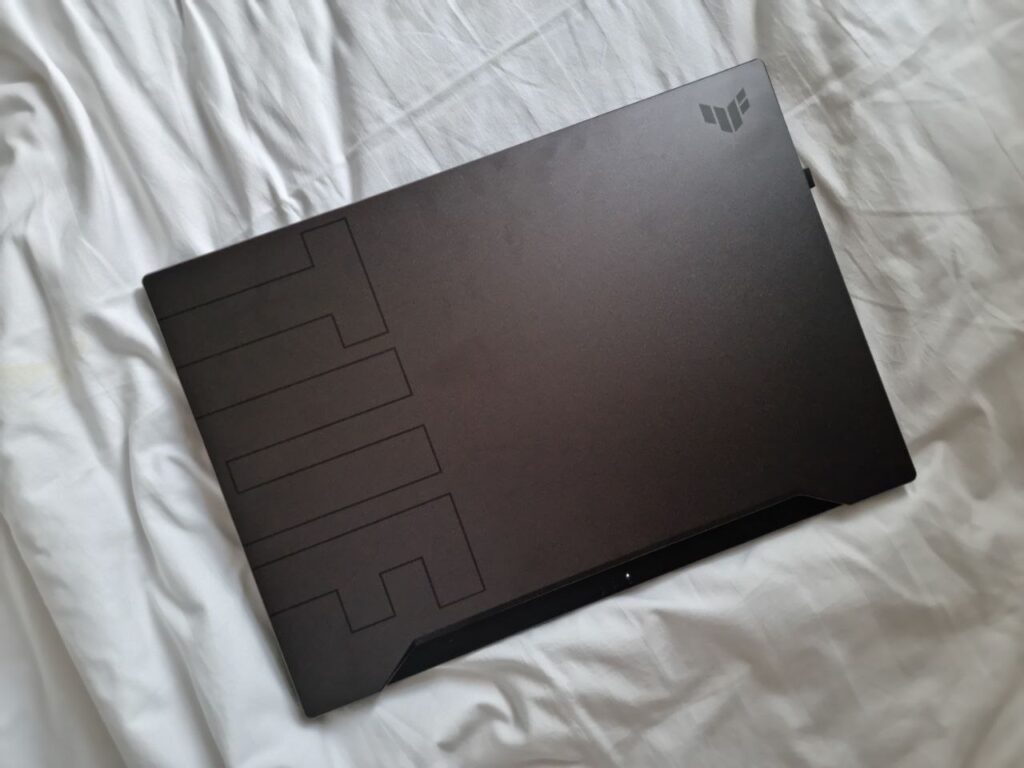
The ASUS TUF Dash F15 is a new sort of notebook in ASUS’ entry-level gaming line-up. It does not feel like they are new to the segment though. The TUF Dash F15 feels like a properly mature attempt at the thin-and-light gaming segment.
The ASUS TUF thin-and-light is brilliant for users who are looking for the form factor but do not want to spend insane amounts of money for it. It is also packed with all the right I/O ports, except for an SD card reader.
It is not the most powerful gaming rig you can find in the market. At MYR 5,799, it is also not the cheapest of its kind out there. For that kind of money, you can get another gaming laptop that features an RGB keyboard instead of a regular backlit one on the TUF Dash F15. The fan profile is a little odd when you start working with it in terms of content creation, which also means you will see some thermal throttling when you start rendering your videos.
If you are in it for the latest games, the ASUS TUF Dash F15 can easily keep up with any title you can throw at it in 2021. Of course, you have to adjust your expectations a little bit in terms of graphics performance. If you are talking about competitive e-sports titles, you are going to be more than happy with it.
Is it worth the MYR 5,799 price tag then? We would say it is. The aluminium finishing on the laptop makes it feel more premium than it is. The laptop is designed tastefully, and the new logo just looks modern and subtle, something we appreciate. In today’s money though, you are getting quite a lot of power. In gaming situations, you are not going to ever feel like you are lacking. In content creation, there are some give and take here, but it works well enough. It is all you could want in a thin and light gaming laptop, just about.



